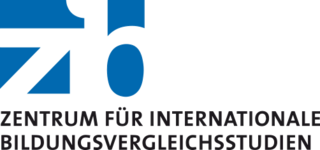Demands and Cognitive Resources in Reading Digital Text
Dr. Carolin Hahnel➚, Research associate DIPF
As society changes towards an information and service orientation, written information, facilitated by digitalization, is available in greater quantity and in a more complex form than ever before. Accordingly, information is often organized in a non-linear way, known as hypertext. Hypertext is a networked structure of single text parts (nodes), which are connected and accessible by hyperlinks. The selection profile, in which readers visit nodes, is referred to as navigation behavior. Although digital reading obviously involves "classical" reading processes (i.e., words have to be read, integrated and interpreted according to the sentence and text structure), it also requires readers to activate additional cognitive resources in order to deal appropriately with the specificities of hypertext. Based on the data of the national PISA 2012 add-on study on computer based assessment➚, the dissertation "Demands and Cognitive Processes in Reading Digital Text" addresses in three studies individual cognitive processes associated with information processing when reading digital text.
The first study➚ examined how demands in digital reading interact with working memory as a limited cognitive resource in readers. The results suggest that students benefit from efficient working memory functions over and above their reading skills, when reading digital text. This was particularly the case in tasks where students had to find information in the text (access and retrieve), and interpret it taking into account other information (integrate and interpret), providing evidence for the assumption that decision and navigation requirements draw upon working memory resources. Finally, it was not the extent of a hypertext system, but the individual navigation behavior of the readers that affected their mental representation of hypertext, suggesting that students can apply strategies in dealing with hypertexts to compensate for deficits in their comprehension.
The second study➚ spotlights the interplay of reading skills, ICT-related skills and navigation behavior in digital reading. The results stress that skilled readers engage with hypertext in a more task-oriented way than less skilled readers, resulting in intense task-relevant navigation and better comprehension of digital text. Students with routinized computer skills were able to flexibly use and traverse digital environments, enabling them to fluently locate and access task-relevant nodes, empowering their text comprehension indirectly. In line with studies investigating the strategic use of previewing and skimming a page before deciding to act, evaluation skills were directly related to digital reading performance. The study supports the conclusion that good readers with routinized skills in dealing with computers and effective strategies for determining the usefulness of web-based information are able to locate, evaluate, and synthesize digital information.
The third study➚ examined a specific form of hypertext and focused on the skill of students to evaluate online information in search engine environments. The results suggest that the assessment of online information involves different reading processes at the word, sentence and text level and that there is a correlation between reading skills and navigation behavior. On the one hand, proficient readers are more likely to accurately assess the need for additional information from websites than less proficient readers (e.g. if they cannot find information that meets their search criteria). On the other hand, navigation evokes new text material that proficient readers can process more efficiently with less mental effort, as they are more fluent in constituent skills of reading compared to less proficient readers.
Reference: Hahnel, C. (2017). Demands and Cognitive Processes in Reading Digital Text [Goethe University Frankfurt]. http://publikationen.ub.uni-frankfurt.de/frontdoor/index/index/docId/44473➚
Doctoral supervisor: Prof. Dr. Frank Goldhammer➚
